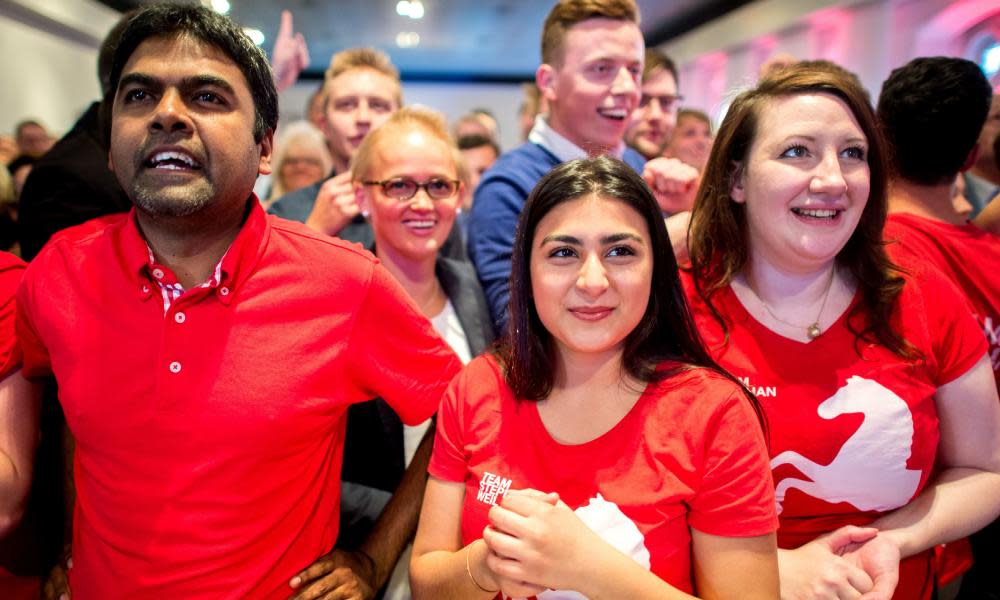Young SPD activists in last-ditch bid to rule out Merkel deal

Germany’s young social democrats are demanding a clean break with Angela Merkel’s conservatives before a crucial vote on Sunday that will decide the country’s political future.
The SPD leadership, which unanimously backs entering a “grand coalition” with centre-right parties (the so-called GroKo), and the youth wing of the party (the Jusos) were making last-ditch scrambles for support on Saturday among the 600 delegates eligible to vote at a special party conference in Bonn. The deal they are voting on has the potential to topple both Merkel and SPD leader Martin Schulz.
The warring factions within Germany’s oldest political party know that the decision could make or break the SPD. The party has, for years, seen its popularity slide, most dramatically in September’s general election – by which time it had served in a coalition for eight of the 12 years of Merkel’s rule – when it scored its worst result for almost 80 years.
Schulz, who was initially vehemently opposed to a coalition, has appealed to members to recognise their sense of historic responsibility, recalling how the SPD was the only party to vote against the law that enabled the Hitler dictatorship in 1933. Now, he said, the party has the responsibility to revive social democracy by offering a fresh vision for Germany and Europe from within government.
But opponents to a deal, led by the Jusos (Jungsozialisten), argue that the responsibility lies in ensuring the party’s survival, which they say is possible only if it has the chance to renew itself in opposition. They also want to prevent the far-right AfD from becoming the main opposition in the Bundestag, a position it would hold in the case of a grand coalition.
On Thursday, at its last meeting before Sunday’s crucial vote, the Berlin wing of Jusos was marvelling at the success of their campaign and discussing tactics over soft drinks.
“We are very clear about our position,” the deputy leader, Benedikt Rüdesheim, 29, an employment lawyer, said. “Some people say we are egotistical and the SPD has a duty to go into government. We say that in the long term it’s better to ensure the SPD has a future, and we can only do that if we stay out of government for the next four years.” Anna Müller, 29, another deputy, who is also a human rights campaigner, added: “We are the ones who have really had the courage of our convictions to say this. Many others in the party, who are also of this opinion but were afraid to voice it, have been given a strong voice to speak out on Sunday.”
But Volker Heckler, a retired senior budgetary administrator from Berlin, who joined the party 57 years ago, said that while the grand coalition was not an ideal option, for the sake of European stability it was the only choice. “We cannot afford to stand by and allow the alternatives – a minority government or new elections. We would be punished even more at the ballot box next time round.”
If the Jusos position wins the vote on Sunday, the SPD will have to abandon talks, setting Germany on a further, much longer, period of deadlock. It is likely that Schulz would be ousted, and Merkel’s future would also be in extreme doubt. If the leadership wins, official coalition talks between the SPD and the conservative alliance of Christian Democrats and the Christian Social Union will be able to proceed.
But even then the drama will not be over. Once a deal is reached, the party’s 450,000 members will still have the chance to revoke it in a postal vote, which Schulz has insisted on, meaning that the final outcome of this gripping political drama will only be revealed, at the earliest, in a month’s time.

 Yahoo News
Yahoo News 
